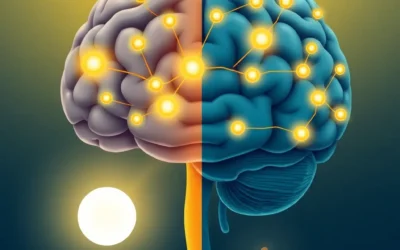Post-traumatic stress disorder (PTSD) is a complex mental health condition that can have profound effects on individuals, particularly women. While PTSD is often associated with male combat veterans, the reality is that women are twice as likely to develop PTSD compared to men. This disparity in prevalence raises important questions about how PTSD manifests in women, the unique challenges they face in diagnosis and treatment, and the impact of gender differences on the course of the disorder.
Research indicates that women are more susceptible to developing PTSD due to a higher likelihood of experiencing certain types of trauma, such as sexual assault and abuse. These traumatic events can have lasting psychological effects and increase the risk of developing PTSD.
Furthermore, studies have shown that women with PTSD often face delays in diagnosis and treatment compared to men. On average, women wait four years before receiving a diagnosis, while men typically wait only one year. This delay in diagnosis can have significant consequences for women's mental health and well-being, underscoring the need for improved awareness and understanding of PTSD in women.
In addition to differences in prevalence and diagnosis, there are also unique challenges that women with PTSD may encounter in terms of co-occurring mental health conditions. Research suggests that women with PTSD are more likely to report co-occurring internalizing disorders such as anxiety and substance abuse. These comorbid conditions can complicate treatment approaches and highlight the importance of addressing the full spectrum of mental health needs in individuals with PTSD.
When it comes to treatment for PTSD in women, there are effective interventions available, including cognitive behavioral therapy (CBT) and pharmacotherapy. The greatest beneficial results for women with PTSD is from a study on military women that had experienced PTSD from battle and military sexual trauma.

What worked for them is a non-drug intervention that is effective by using a mental training strategy that focuses on erasing the emotional content of the memory. The conclusion of that study had impressive results - 'RTM (Reconsolidation of Traumatic Memories) eliminated intrusive symptoms and significantly decreased symptom scale ratings in 90%'. What is additionally impressive is that this RTM protocol is done in under 5 hours. To learn more, I have made a notion template that includes the step-by-step intervention along with additional studies indicating how it works.
In light of these complexities surrounding PTSD in women, it is clear that a comprehensive approach is needed to address the unique challenges they face. Creating a supportive environment that fosters open conversations about mental health, increasing awareness among healthcare providers about gender differences in PTSD presentation, and advocating for gender-sensitive treatment approaches are all critical steps towards improving outcomes for women with PTSD.
By shedding light on the impact of PTSD on women and exploring the multifaceted nature of this condition through a gender lens, we can work towards better understanding, diagnosing, and treating PTSD in women. Through continued research, education, and advocacy efforts, we can strive towards a future where all individuals affected by PTSD receive timely and effective care tailored to their specific needs and experiences.
Summary of RTM Protocol in Erasing PTSD in under Five Hours
Havin...
Review of Reconsolidation Behavioral Updating of Human Emotional Memory
Compr...
How Does CREB Differ Between Memory Reconsolidation and Memory Extinction?
The...
How PTSD Was Cured Four Times in 5 Hours
This...
Can a Breakup Lead to Depression?
It...
How to Get Over the Death of a Service Dog like a Vietnam Veteran in 78 minutes.
This...
PTSD Symptoms in Women: Understanding the Unique Challenges
Post-...
The Power of Visualization: Lessons from Natan Sharansky, Arnold Schwarzenegger, and Michael Phelps
Visua...
7 Subconscious Blocks Holding You Back (and How to Overcome Them)
Have...
What Are PTSD Symptoms in Women?
Post-...
How to Cure PTSD Four Times in 5 Hours with Memory Reconsolidation Therapy
This...
Neurologist Dr Mark D’Esposito on How to Improve Focus, Productivity, Planning and Achieving Goals
Dr....

























